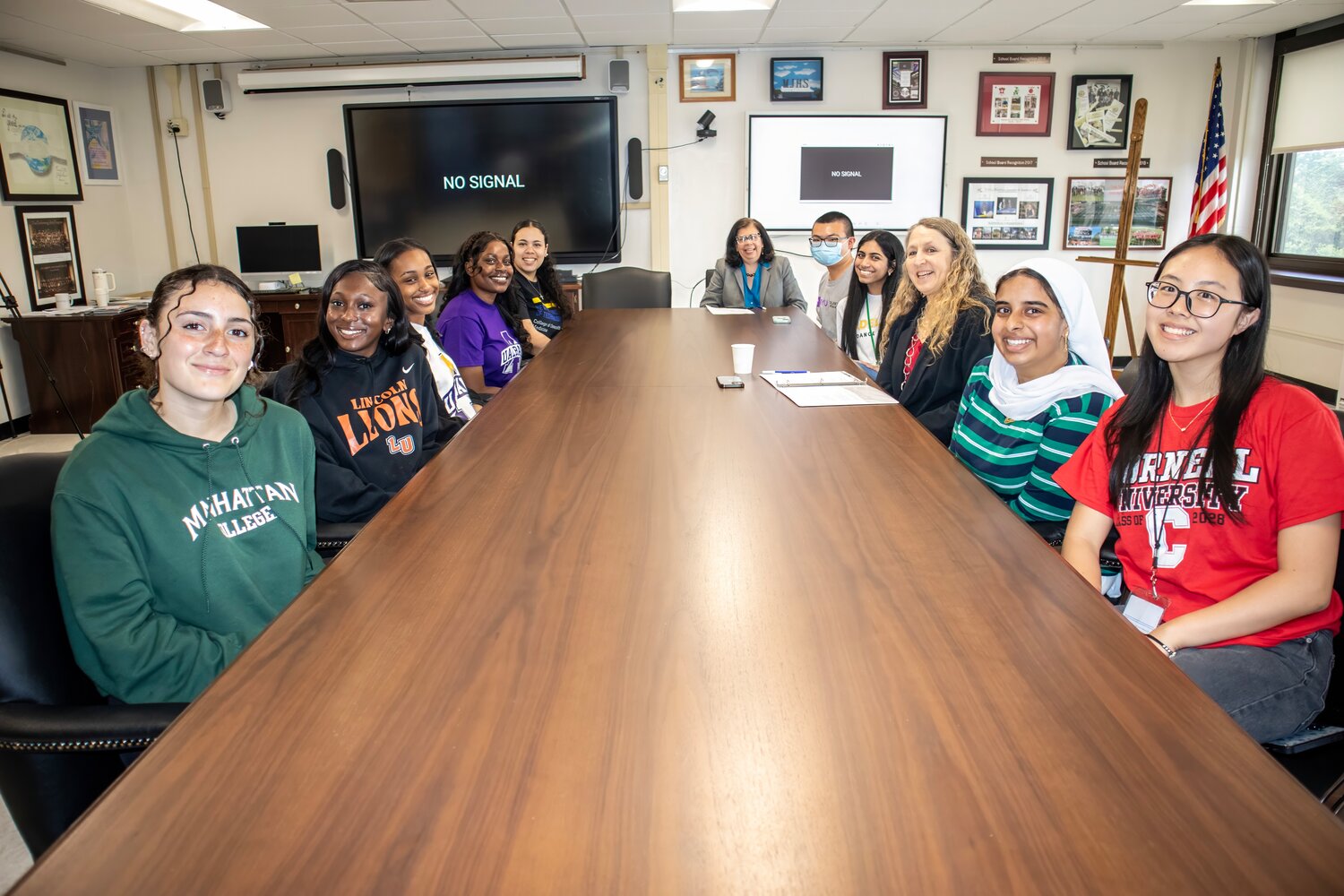FAFSA 2024: Here's why FAFSA frustrations ran high with these Valley Stream students
Students agree — this year's new, ‘simplified’ FAFSA was anything but.
Syedah Ali, a Valley Stream South High School senior, curtly summed up what it was like applying to this year’s Free Application for Federal Student Aid program, better known as FAFSA.
“It was a hard process,” said Ali, a low-income student, with aspirations to become a physician assistant.
She knew college was financially out of reach for her parents. Determining how she could afford it led her to search for financial aid opportunities with eyes wide open.
For Ali, that meant negotiating financial aid packages from colleges, and — like millions of other students — navigating the federal student aid application. According to government officials, this year’s application process was intended to be easier than ever with the roll-out of a new site and a simplified and streamlined version of FASFA’s original 108-question application form. But for Ali and countless other students, that was far from the case.
Navigating the FAFSA maze
Riddled with errors and bureaucratic slip-ups, the federal education department fumbled the processing of student information required by colleges to formulate financial aid offers, creating a dizzying storm of delays and postponements.
South student Arianna Perez said the FAFSA website would crash constantly on her, turning what was advertised as a quick, painless process into something that took months to complete.
“You’d submit information and then tell you two months later that you missed a part of the application, and then wait another month to redo it all over again,” said Perez. “Other websites warn you about missed information and don’t make you start the process all over.”
Colleges adapt, challenges remain
Colleges and universities, in response to the roster of unsent financial award letters, have pushed back their normal May 1 decision deadline for applicants to commit. As of last Friday, Ali, whose FAFSA assistance was delayed, said she was still weighing her options between Boston University and Stony Brook.
“Clearly, we have had a difficult processing year,” said Dana Kelly, vice president of professional development and institutional compliance for the National Association of Student Financial Aid Administrators. “Right now, the application is stable and most people can go in and complete the form online.”
But there are still kinks left to straighten out, noted Kelly. Students, for instance, who have one parent with U.S. citizenship status and the other without, “cannot complete the form outside of filling the paper FAFSA.”
“FAFSA paper forms aren’t going to be processed until sometime later this month and we don’t have a date yet as to when those actually will begin,” she said.
Streamlined questions, simplified forms
Despite a bumpy execution and a swirl of negative headlines, the technical bugs in the FAFSA electronic application have, for the most part, been cleared, argued Kelly. Positive reports about shorter completion times and user-friendly accessibility are coming in — a reassuring sign that things are getting back on track.
In terms of positives, the application has been peeled back to 36 questions and much of an applicant’s financial details can be pulled directly from their tax returns.
“There is skip logic built into the new system to eliminate the number of questions a student sees that are not specific to his or her situation,’ said Kelly. “If you look at the back of the FASFA form, there are actually more fields than we had before, but those fields are targeted to individuals who need them.”
Kelly admitted that some new features of the application like having parents individually consent to the transfer of their IRS data have eliminated the former ease of simply having an aid administrator fill out the form on behalf of a student.
“Consent has become a big piece of the puzzle for FAFSA this year,” she said and noted that for parents with a complicated immigration status, information provided to FAFSA is completely confidential.
Still, concern looms among state education experts that the cumulative difficulties of the FAFSA process this year have driven away applicants, particularly among minority and low-income students.
“Every year, millions of federal and state aid dollars are left on the table because students don’t apply,” Donna Linderman, senior vice chancellor for student success for SUNY, told a select group of students at a roundtable discussion at Memorial Junior High School last Friday.
“Our SUNY system has so many resources available to help students fill out the FAFSA regardless of whether you’re applying to us,” she said. “I want to make sure students like you have the accessibility to the resources they need.”
Additional reporting by Nora Toscano
Have an opinion on this article? Send an email to jlasso@liherald.com.






